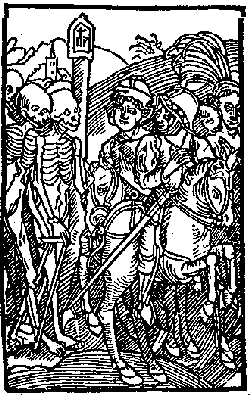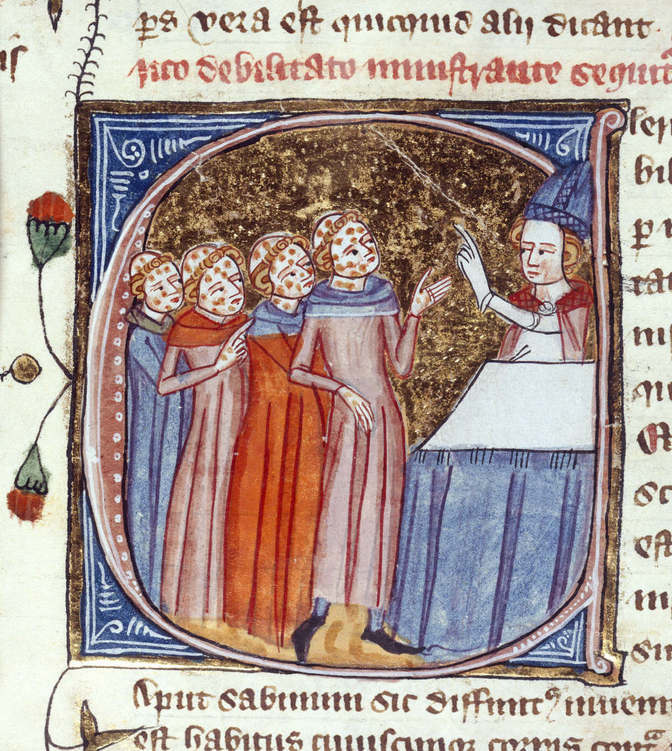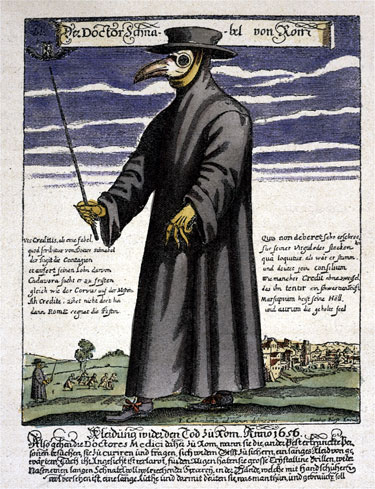Watching the financial mayhem unfold over the past weeks has been uncannily reminiscent of the early 1980s, when the AIDS virus was first discovered on American shores. The impact of the crisis has been startlingly similar to that of the deadly disease whose contagion changed the world forever ju st a generation ago. As in the early days of AIDS, the sources of the current crisis are poorly understood but its fatal effects are all too evident–a toxic combination that has spread fear around the world. We’re witnessing a kind of global infection among our social and economic institutions, and may need to start thinking like epidemiologists—the scientists who fight the spread of AIDS and other diseases—in order to stem our losses.
st a generation ago. As in the early days of AIDS, the sources of the current crisis are poorly understood but its fatal effects are all too evident–a toxic combination that has spread fear around the world. We’re witnessing a kind of global infection among our social and economic institutions, and may need to start thinking like epidemiologists—the scientists who fight the spread of AIDS and other diseases—in order to stem our losses.
Epidemiology, a word with Greek roots, literally means “the study of what is upon the people.” Typically, it means the processes by which infections spread through populations. But there are a number of reasons to think that an epidemiological model is appropriate to our current socio-economic crisis, and can help us make sense of “what is upon the people” now.
What can we learn by taking an epidemiological approach to the market meltdown? Three things, all of which were applicable to the AIDS crisis, too. The point is not to drum up sympathy for financial firms, which would seem to deserve little of our compassion, and certainly far less than victims of disease. Rather, these observations highlight the social processes through which we respond to spreading crises, and how those processes can make a bad situation worse.
1) Failing to act on signs of danger allows a problem to become an epidemic.
The panic spread by the AIDS virus was driven in large part by its terrifying unknowns: though its fatal effects quickly became apparent, it took almost 25 years to track down its origins to chimpanzees in southern Cameroon. Turns out that AIDS has been present in humans–who hunted and ate the chimps—since at least 1930, but it took 50 years to mature into a global epidemic.
Just as AIDS appeared in the 1980s, as if out of the blue, the collapse of the global economy has seemed similarly unexpected to many investors. After all, only a little over one year ago—in October 2007—the Dow Jones Industrial Average ended several trading days above the 14,000 mark. Who could have predicted that the index would plummet by almost 50% in 12 months, and that we’d be contemplating the bankruptcy of such institutions as General Motors?
In fact, some of the most distressing news about the current crisis is that people in the financial industry did see this crisis coming years ago, but nothing was done to stop it. Instead, that knowledge became the basis for unimaginable profits. Last spring, John Paulson (no relation to Treasury Secretary Hank) topped the list of world’s highest-paid hedge fund managers, earning $3.7 billion for 2007 after directing his firm to short-sell America’s sub-prime mortgage markets. And Paulson was no lonely prophet, crying out in the wilderness; he had lots of company. In 2006, at the same time Paulson was warning his fund’s investors about the imminent collapse of the mortgage market, brokers on the NYSE were predicting that GM would go bankrupt by 2009. Other hedge funds, like the UK’s GLG were busy making piles of cash on the basis of such predictions: so much so that the top three executives in the fund split a $1 billion paycheck for 2007.
Over the next year or two, we can expect to learn that the “sudden” collapse of the world economic system was in fact an open secret in the financial industry, and probably elsewhere. Given the close connections between Wall Street and Washington (it should help that our Treasury Secretary used to run Goldman Sachs, right?), this begs the same question that haunted America during the AIDS epidemic: what were our elected representatives and regulators doing when there was still time to prevent, or at least mitigate, the damage?
2) Putting ideology above pragmatism only makes the crisis worse.
If you were alive during the early days of the AIDS epidemic, you may recall that once the disease was identified, it was thought to be limited to gay men and IV drug users. Unfortunately, the ideology of the time turned that into a rationale for complacency: in the eyes of some who had the power to make a difference, the plague was a just consequence of high-risk behavior by a sub-set of the population who didn’t deserve help.
We all know how well that worked: just ask anyone who had a blood transfusion during that period. While then-President Ronald Reagan dithered, refusing to allow public service announcements to even mention safer sex practices that might have limited the spread of the disease, HIV infection rates exploded, reaching millions of people worldwide who had never had gay sex nor used drugs. Oops.
Reagan’s heirs have now had the opportunity to show how that “ideology first” strategy plays out when the economy gets sick. So, in the name of a theory—free market capitalism—Republicans let Lehman Brothers, mired as it was in toxic sub-prime mortgage debt, go bankrupt instead of arranging the kind of bailout or buyout that AIG enjoyed. For about five minutes, this looked like a win for the non-wealthy majority whose taxes pay for the bailouts, and a rare show of congruence between talk and action on the part of the political right. Two cheers for the Lehman liquidation!

The third cheer was silenced by the realization that as Lehman went down, it would take the rest of the market with it—including parts that had no direct exposure to the sub-prime crisis and were thought to be safe as houses (pun bleakly intended). The Reserve Primary fund, which had made the kind of ordinary short-term business loans known as “commercial paper” to the venerable Lehman Brothers, became the first public money market fund in history to “break the buck:” that is, since it would never get repayment on its loans to Lehman, the Reserve fund’s share price dipped below $1. Because money market mutual funds are supposed to be as secure as savings accounts, this one event caused the entire credit system to hit the breaks, hard. Since it appeared the anything could happen, and nothing was safe, banks wouldn’t even make short-term loans to each other, to say nothing of businesses and individuals. And that’s how the DJIA lost another couple thousand points. Oops.<
3) As the contagion spreads, it destroys the trust needed to fight it.
Our current economic crisis could be explained with haiku-like simplicity, as follows:
· no trust means no credit—nobody can get a loan
· no credit means no capital to make payroll or build things
· no capital means no capitalism
Congress may have approved a $700 billion bailout package, but since the banks who got the money are hoarding it instead of lending it out as intended, we accomplished nothing besides adding a zero to the national debt.
How could this happen? Part of the problem was undoubtedly that the bailout came with no strings attached and no oversight—a political move which will live in infamy. Perhaps more importantly, the bailout didn’t directly address the trust problem: there was nothing in the deal to either assure banks that the risks of making loans had returned to an acceptable level, or to force them to lend despite heightened chances of default.
Moreover, banks realized, as did many others, that by allowing Lehman to go bankrupt, the US government had given the remaining firms in the financial industry a really good reason to lie about the true extent of their exposure to the sub-prime crisis. Following the Lehman liquidation, there was an undignified scramble to make firms look financially healthier than they really were, distancing themselves as much as possible from bailouts and forced mergers. They may have fooled Congress, but not the banks.

And thus we find ourselves re-learning one of history’s most important lessons about plagues: trust is among the first casualties. Fear of each other erodes the very cooperation we most need to contain the crisis. Thus, when banks stopped lending to each other, as well as to the mortgage and commercial paper markets, they deepened the crisis in much the same way as institutions and individuals did when faced with the spread of AIDS in the early 1980s. As the virus spread, and became associated with gay men and IV drug users, those groups became literally untouchable—including by the doctors and nurses whose care they desperately needed. And when it became clear that the disease was not limited to “high-risk” groups, even hospitals turned away the infected until the practice was halted by a series of court decisions and new legislation.
Now that we find ourselves facing the economic equivalent of AIDS, we are making the same mistakes our forebears made in the face of those earlier contagions. Even those who aren’t directly harmed by the sub-prime crisis are infected with fear. What can we do differently this time? Unfortunately, the time for early action has passed. That leaves us with pragmatism and cooperation, two of the great virtues traditionally attributed to Americans. Let’s live up to our reputation and reject the ideologies and isolation that have only made things worse.
Comments 1
Disaster Sociology | The Global Sociology Blog — January 4, 2009
[...] by Greet BoxOver at the great Economic Sociology blog, Brooke Harrington has a very interesting post comparing the unfolding of the current economic crisis with the advent of the AIDS [...]